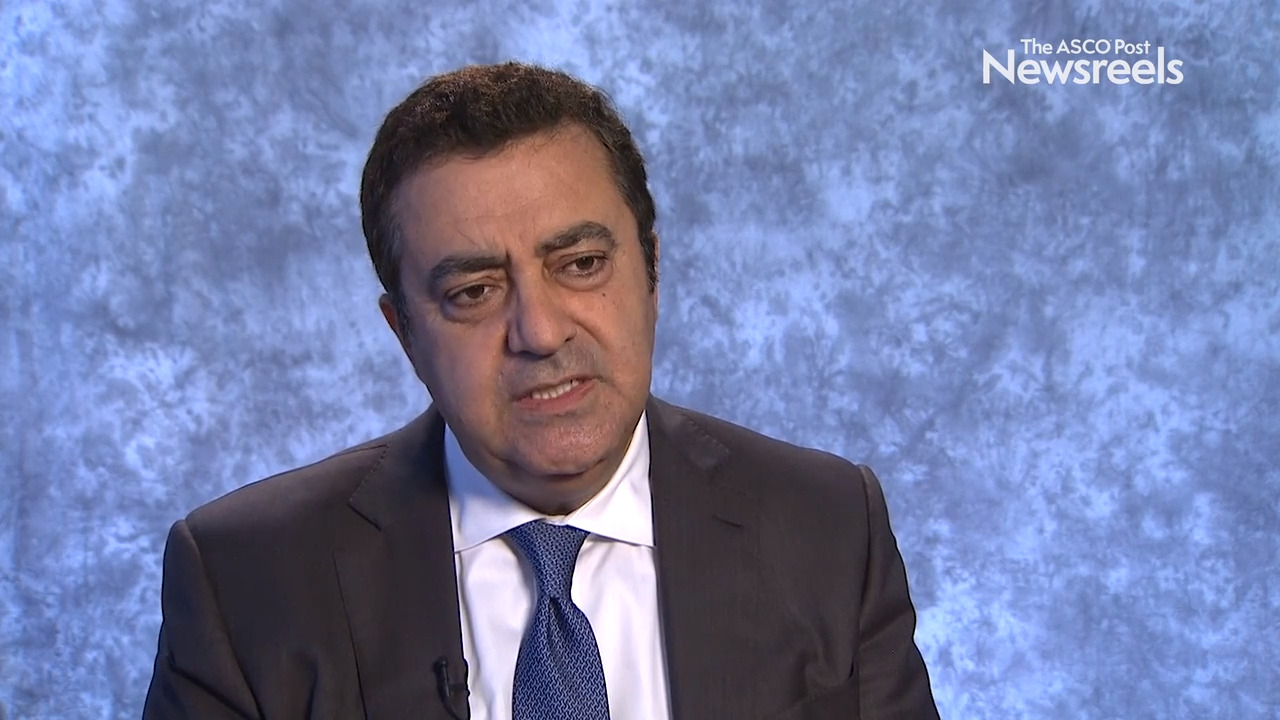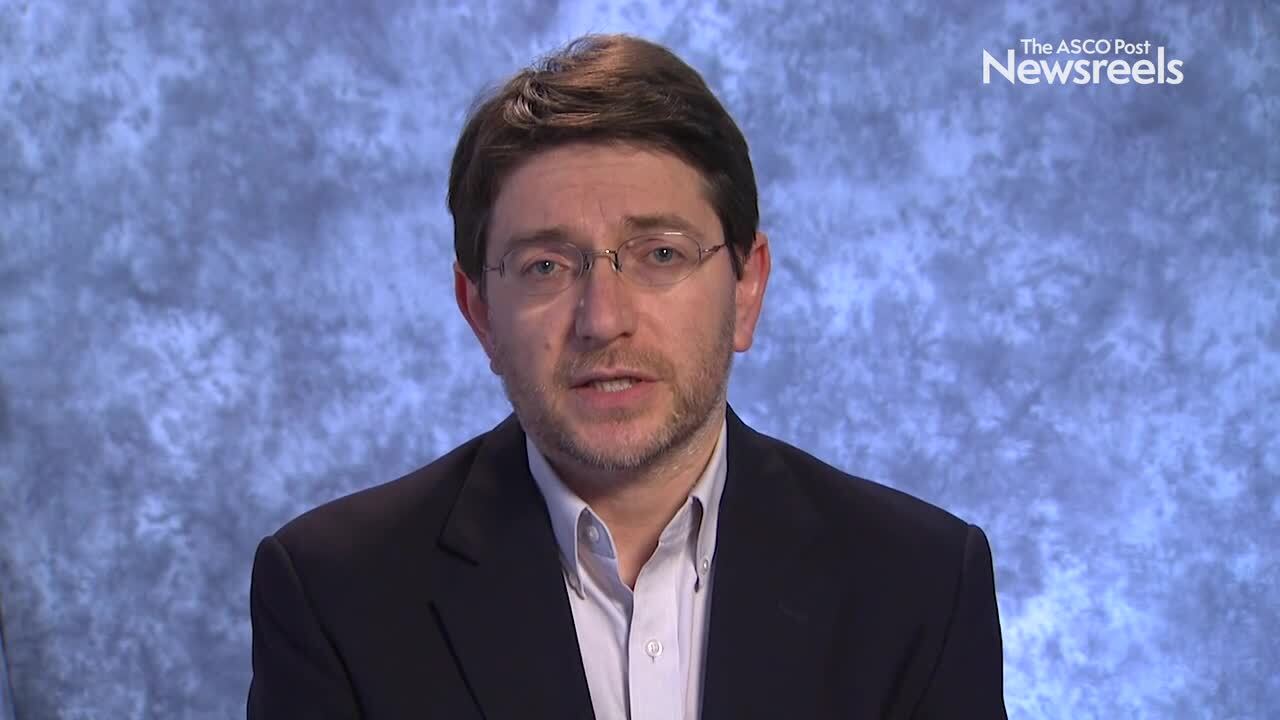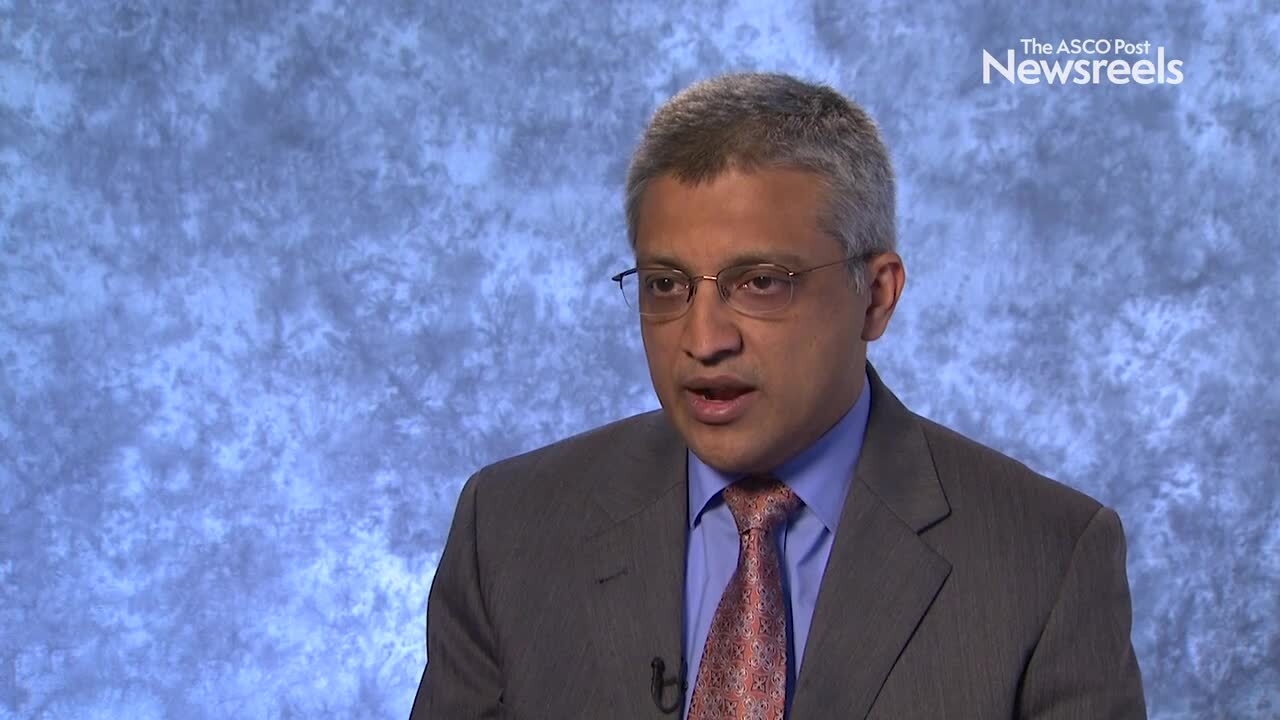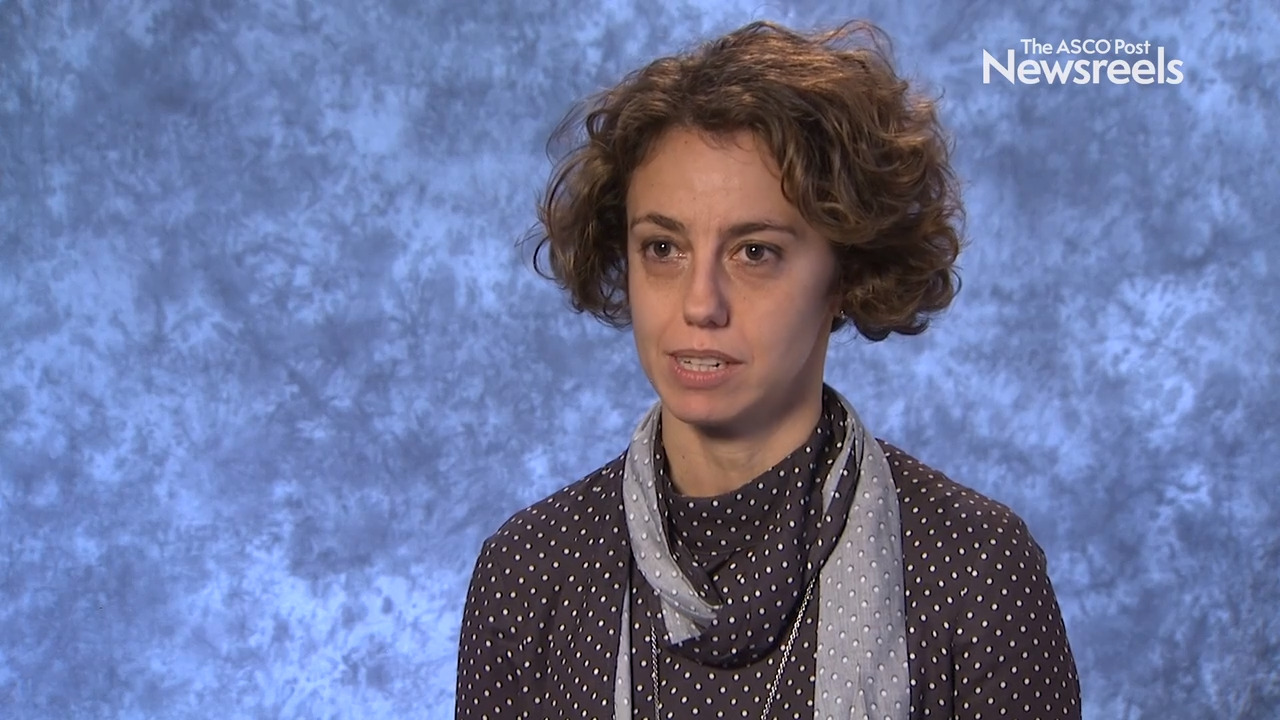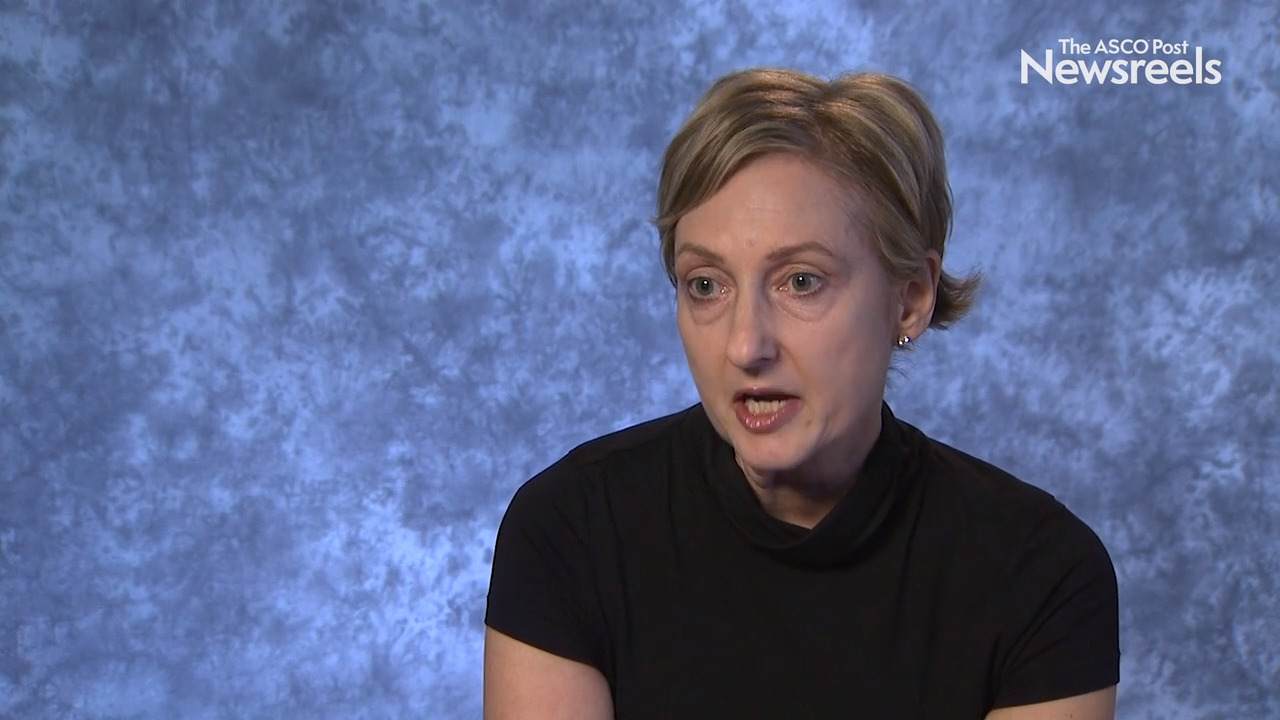Paul Richardson, MD, on Multiple Myeloma: Results From the OP-106 Horizon Trial
2018 ASH Annual Meeting & Exposition
Paul Richardson, MD, of Dana-Farber Cancer Institute, discusses updated results and the first report on progression-free survival for melflufen therapy administered to people with multiple myeloma that is refractory to daratumumab and/or pomalidomide (Abstract 600).
Anas Younes, MD, of Memorial Sloan Kettering Cancer Center, discusses trial findings on ibrutinib plus rituximab, cyclophosphamide, doxorubicin, vincristine, and prednisone in people with previously untreated non–germinal center B-cell–like diffuse large B-cell lymphoma (Abstract 784).
Alexander B. Pine, MD, PhD, of Yale School of Medicine, discusses a survey gathering data on health-care providers’ practices and preferences in using direct oral anticoagulant therapy to treat venous thromboembolism.
Readers of The ASCO Post are invited to participate in this research by completing the survey, entitled: “Perspectives and Practices in Utilization of Direct Oral Anticoagulants in Patients With Cancer-Associated Venous Thromboembolism.” The survey takes approximately 3 to 4 minutes to complete and can be taken on a mobile device or a computer. The survey link is https://yalesurvey.ca1.qualtrics.com/jfe/form/SV_3l0HxrreWZhVtBz.
Shaji K. Kumar, MD, of the Mayo Clinic, discusses phase III findings on daratumumab plus lenalidomide and dexamethasone vs lenalidomide and dexamethasone in people with newly diagnosed multiple myeloma who are ineligible for transplant (Abstract LBA2).
Francesca M. Gay, MD, of GIMEMA, European Myeloma Network, discusses study findings on the use of carfilzomib in induction combination regimens with autologous transplantation, and consolidation regimens in newly diagnosed multiple myeloma (Abstract 121).
Laurie H. Sehn, MD, MPH, of the British Columbia Cancer Centre for Lymphoid Cancer, discusses a study by the Lunenburg Lymphoma Biomarker Consortium that confirmed previous reports on the negative prognostic impact of an underlying MYC-translocation for both progression-free and overall survival in diffuse large B-cell lymphoma (Abstract 344).
